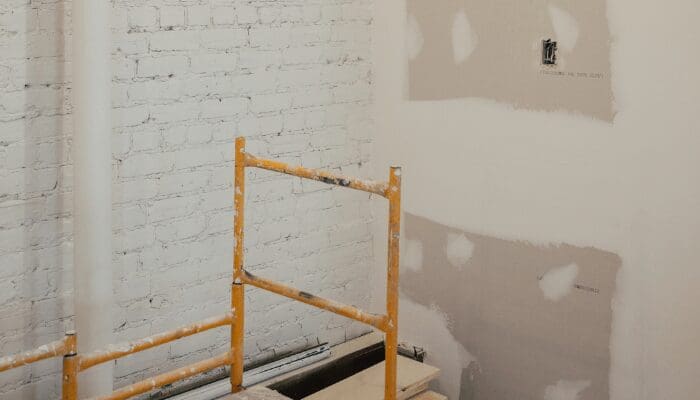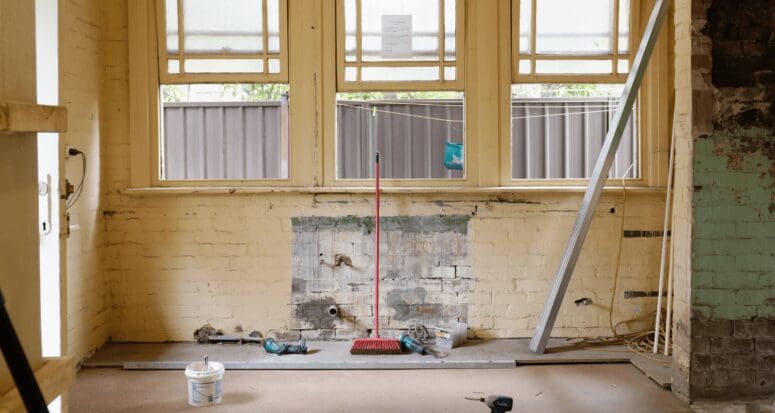Do You Need a Real Estate License to Flip Houses?
- Published on
- 3-5 min read
-
 Elizabeth Pandolfi Contributing AuthorClose
Elizabeth Pandolfi Contributing AuthorClose Elizabeth Pandolfi Contributing Author
Elizabeth Pandolfi Contributing AuthorElizabeth Pandolfi is an award-winning writer and editor with expertise in real estate coverage, including New Urban and planned communities.
There’s no law that says you need a real estate license to flip houses professionally. So technically you can skip the state exam that aspiring agents have to take on your way to becoming Chip and Joanna Gaines (though they are both Realtors, by the way!)
But we’ve spoken to investor specialists, flippers, and top agents on the subject and the bottom line is you probably want to get a real estate license if you plan to do this flipping business full-time. Alternatively, you can partner up with an agent who has flipping experience.
The right choice varies case by case, but to succeed at a notoriously tough trade with razor thin margins and regulations you need to follow, the more knowledge and help you have going into it, the better.

Don’t be fooled: It’s hard to make money flipping houses
House flipping is not a guaranteed get-rich-quick scheme. In fact, home flippers generally consider a flip to be a success if they get a 10-15% gross profit margin. That doesn’t leave much room for error—one major unanticipated repair could easily wipe out any profits you expect to make.
What’s more, 2018 data from ATTOM Data Solutions shows that gross return on investment, or ROI, from home flipping has decreased to a seven-year low. In 2018, completed home flips yielded an average return of $65,000, down from $66,900 in 2017. (Remember that that number is simply the price the flipper sold the home for, minus the price the flipper purchased it for. The cost of repairs and renovations is not factored in.)
That said, people can and do still make money flipping homes. But if you want to be among the numbers of successful, profitable home flippers, you have to know how to do it right—and having a real estate license can help.

Why should you consider getting your real estate license to become a home flipper?
Since you don’t actually need a real estate license to become a home flipper, should you put in the time and effort to get one? It depends on whether you want to pursue house flipping as an ongoing side hustle, or as an occasional hobby.
If you plan on flipping a single house, pocketing the profits, and moving on, it doesn’t make sense to get your license. Instead, you should search for a real estate agent with experience in home flips who can help you navigate the process of buying, renovating, and selling.
However, if home flipping is something you enjoy and want to continue, getting your real estate license can give you some major benefits. Let’s review some of the biggest.
1. Bypass agent commissions
Unless you’re a licensed real estate agent, you’ll have to pay real estate agent commissions when you set out to sell your flipped home, which will typically amount to 5%-6% of the sale price. On a $250,000 home, you’d have to deduct another $15,000 from your projected profits on the sale.
2. Get an understanding of real estate rules and regulations
Knowing the ins and outs of real estate law can be a boon to house flippers, especially in regards to issues like permitting, disclosures, and housing discrimination.
For example not getting the required permits for a project can open a house flipper to liability months or even years down the road.
“This happens to a lot of people,” says André Kocher, a top-selling real estate agent in Carrollton, Texas who has spent over 15 years assisting clients to invest in and transform homes and personally fixes up houses and turns them into rentals. “Say there’s a pool in the yard, and when you buy the house you demolish the pool. Well, you’re supposed to get a permit to do that.
“If you don’t disclose that there was a pool that you demolished, and you didn’t get a permit because you’re trying to save as much money as possible, that may not interfere with closing but it can easily become an issue later.”
2. Gain access to the multiple listing service (MLS)
The multiple listing service (MLS) is a series of private regional property databases. To have direct access, you must be a licensed real estate agent in your state.
One reason the MLS is so helpful for home flippers is that in hot real estate markets, there’s a great deal of competition for homes that are suitable for a flip.
“The most difficult part is finding houses to flip,” Kocher says. “If I’ve got a house that I think might be a candidate for a flip, there are going to be buyers who want to fix it up and live in it, investors wanting it, big companies wanting to buy it for rental housing—it doesn’t matter how bad the house is, there are going to be multiple offers on it.”
If you put the MLS to work for you by setting up notifications, you’ll know about available properties as soon as they hit the market, giving you an advantage.
3. Make connections with high-quality contractors
When you become a licensed real estate agent in your state, you’ll naturally begin to meet other members of your local real estate community. As you build that network, you’ll have greater access to word-of-mouth recommendations for the contractors and other building professionals who are critical to any home flip.
“Word of mouth is one of the best ways to find out if a contractor is good or not,” says Charles Tassell, COO of the National Real Estate Investors Association. “You’ll be able to get that from other people who have more experience in that market than you do.”
5. Increased trust from potential buyers
According to data from the National Association of Realtors, 87% homebuyers in 2018 purchased their home through a real estate agent.
Selling a home through an agent makes a difference in price, too: NAR also reports that the average For Sale By Owner (FSBO) home sold for $200,000 in 2018, compared to $265,500 for agent-assisted home sales.
In addition, data from a study by Owners.com found that millennials and boomers who are searching for homes to buy rely on their real estate agents more than online data sources.
That information alone should tell you that having a real estate agent involved in your home flip—whether that’s you or a local agent you hire—puts you in a strong position. “The majority of homes flipped here [in the Dallas area] that sell are listed by a Realtor,” says Kocher. “That’s the case eight, nine times out of 10.”
How do you obtain your real estate license?
Real estate licenses are given out by each state, so requirements vary somewhat depending on where you’re located. However, every state has the same basic process:
- Ensure you’re eligible for a state real estate license.
You can do this by checking the requirements for your state’s real estate commission. In general, there’s a certain age requirement as well as the requirement that you are a U.S. citizen. - Take a real estate pre-licensing course offered by an accredited institution.
Pre-licensing courses will prepare you for your licensing exam, and a certain number of hours of education are required by every state. These can range from as few as 60, to as many as 160.Both online and in-person courses are offered throughout the country; however, certain states do not allow for online courses (including Arizona, Connecticut, Delaware, Idaho, New Jersey, North Carolina, Rhode Island, South Carolina, and Washington, D.C.). If your state does allow online coursework to count toward your real estate license, Real Estate Express and Kaplan are both top schools to consider. - Pass your state’s licensing exam.
Once you’ve completed the coursework, it’s time to sign up to take your state’s licensing exam, which is usually completed at a third-party testing site. The exams are typically divided into two sections: one on your state’s real estate laws and principles, and one on national and general real estate laws and principles. - Activate your license.
Once you pass the test, you’ll need to activate your license through your state’s real estate commission, which generally costs between $200 and $400. - Pay for MLS membership.
In order to access the MLS, you’ll have to pay annual dues, which vary by county. These can be as low as $220, in certain counties in California, or as high as $1,160 in more urban areas like Washington, D.C.

What if I don’t want to get my real estate license, but I still want to flip houses?
Getting a real estate license isn’t for every home flipper—and the good news is, you can get many of the benefits that a license offers you simply by finding a top local real estate agent who has experience flipping homes.
In fact, sometimes you can actually benefit more from working with an experienced agent than getting your own license.
Agents will have a wealth of knowledge that you don’t get in real estate school, like which renovations are earning home flippers the greatest ROI, whether or not the neighborhood will realistically support the price you’re asking, and how strong the market for flips is.
“I think you should get a real estate license to get into real estate—not to flip houses,” Kocher says. “If you’re just flipping houses on the side, use a Realtor.”
Getting your real estate license can be a great investment if you plan to get serious about flipping houses—and who knows, there’s a chance you’ll end up making real estate your full-time career.
If flipping is more of a hobby, however, you’re likely better off simply using an agent. You’ll get many of the benefits of a license, without spending the time, money, and effort that it takes to get your license and maintain it year after year.
Header Image Source: (Laurie Shaw/ Pexels)
